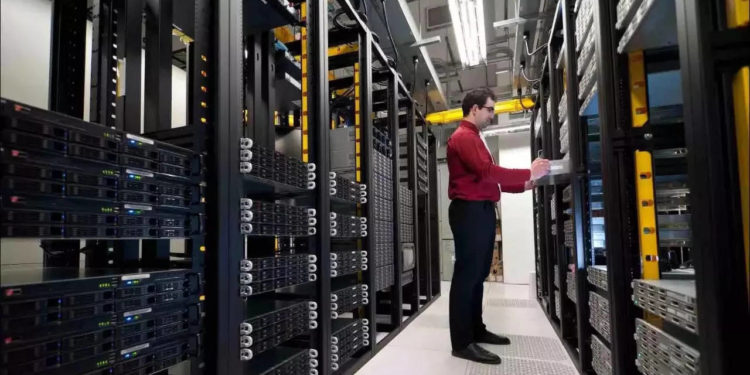[ad_1]
Tech companies use data centres to store email, photos, videos and other data that are available on the cloud. To train artificial intelligence models and to mine cryptocurrencies like Bitcoin, the number of data centres are growing around the world. According to a report by the International Energy Agency (IEA), AI training and crypto mining may push data centres to double their electricity usage by 2026.
Cryptocurrencies as well as AI tools like ChatGPT have already raised concerns about their impact on the environment. These data centres have been criticised for greenhouse gas emissions caused due to their electricity use.
To compare, in 2022, the data centres, cryptocurrencies and AI accounted for around 2% of global electricity demand, which was 460TWh of electricity.
The report predicts that by 2026, electricity consumption from data centres is expected to increase to 1,050TWh depending on the pace the technology develops.
Why electricity consumption by data centres may increase in different countriesAs per the report, the US has the most data centres in the world. 33% of the estimated 8,000 data centres around the world are present in the country that also leads in Bitcoin mining.
Over the next couple of years, electricity consumption of data centres in the US is expected to rise from nearly 4% of the country’s demand in 2022 to 6% by 2026, the report predicts. The expansion of 5G networks and cloud-based services will also add to the growth.
Ireland is also expected to see a boom in new data centres. In 2022, 82 data centres that are already operational accounted for 17% of the country’s electricity consumption. The report predicts that another 54 are either under construction or recently approved to start building. By 2026, these data centers may become cumulatively responsible for nearly a third of the country’s annual electricity demand.
Cryptocurrencies as well as AI tools like ChatGPT have already raised concerns about their impact on the environment. These data centres have been criticised for greenhouse gas emissions caused due to their electricity use.
To compare, in 2022, the data centres, cryptocurrencies and AI accounted for around 2% of global electricity demand, which was 460TWh of electricity.
The report predicts that by 2026, electricity consumption from data centres is expected to increase to 1,050TWh depending on the pace the technology develops.
Why electricity consumption by data centres may increase in different countriesAs per the report, the US has the most data centres in the world. 33% of the estimated 8,000 data centres around the world are present in the country that also leads in Bitcoin mining.
Over the next couple of years, electricity consumption of data centres in the US is expected to rise from nearly 4% of the country’s demand in 2022 to 6% by 2026, the report predicts. The expansion of 5G networks and cloud-based services will also add to the growth.
Ireland is also expected to see a boom in new data centres. In 2022, 82 data centres that are already operational accounted for 17% of the country’s electricity consumption. The report predicts that another 54 are either under construction or recently approved to start building. By 2026, these data centers may become cumulatively responsible for nearly a third of the country’s annual electricity demand.
Expand
How AI and crypto can increase electricity consumptionIn a scenario, when Google Search has fully incorporated AI, it may use up to ten times more electricity, the IEA report notes. The report also predicts that the AI industry may also use ten times as much electricity in 2026 as it did in 2023.
By 2026, the electricity demand for cryptocurrencies is also expected to increase by 40%. However, the Ethereum blockchain was able to reduce its electricity use by more than 99 percent by switching to a more energy-efficient method of validating blocks of new transactions.
[ad_2]
Source link

